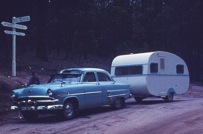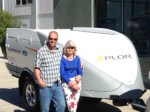This post is by Fiona McDonald. We are in this together.

Ding. Ding. Ding.
The bell sounds the start of round 2.
This will be a different round from the first round.
Round 1 had seen an unknown featherweight sent into the ring against a known heavy weight—LC.
No one had known why the round had even been scheduled. It was a total mismatch.
There had never been any doubt in the minds of most as to the outcome.
It had just been a warm up round for early spectators to the main event, a small sideshow off to the side.
But as the young featherweight danced around the ring, in his naivety throwing punches that LC hadn’t expected, fighting in a totally unconventional style, this round had gathered the interest of the spectators, both professionals—medical and theological, and amateurs—believers and non-believers.
Much to everyone’s amazement, including the featherweight himself, blows had been delivered that had knocked LC around, causing him to stumble and fall.
The judge’s decision was totally unexpected—the featherweight had won the first round.
But now the bell is ringing for the second round.
It has been a long time since the first round.
The crowd has drifted on to other matches, other things in life.
The featherweight himself has moved on from that first round.
The unexpected win had given new lease to life.
There had been the book written of the experience and talks to encourage others in their unexpected fights with LC’s brothers.
There had been a new job—leading a church in the Stromlo region. Then taking on and shaping the first FIEC national director job. With pastoral ministry to the local, national and even international church.
There had been the fulfilment of bucket list prayers—kid’s graduations; weddings; special birthdays; the joy of four grandchildren; family holidays to beautiful places; joy, beauty, life; celebrating the life God continued to give; celebrating NED.
But there had also been occasional reminders—scanxiety every 3 months; the serious oncologist with somber warnings; the progression of LC in others; and the deaths and funerals of fellow LC and other C brothers and sisters. Life, and sometimes even breathing were reminders of LC not being far away.
And now the bell sounds for round 2.
Years later…
Some had thought the battle had been won and there would be no round 2.
But the wise, including those in the corner of the featherweight, hadn’t been caught totally unsurprised when LC suddenly scheduled a second round. LC didn’t like losing. His backers didn’t like losing. They’d bided their time before turning up again, hoping to catch the featherweight off guard, untrained, unprepared.
It’s now an older, middleweight who now steps into the ring against LC.
Older, wiser, more tired, still bearing the bruising and scarring from last time.
But not totally unprepared.
Not quite so naïve as last time.
Maybe more skill than last time?
They’ve been working on the left jab, fighting hard, building strategies.
Jab… the research and experimenting with new treatments that has happened in the last 8 years. No longer is the world so scared of LC, or his siblings. Great advances have been made.
Jab… no longer is all LC the same. Now it is understood at the molecular level, cell types and genetic mutations promptly looked for.
Sure, there’s still the discrimination… “you must have been a smoker” and “You get what you deserve”.
Sure, funding for other Cs is still greater… who doesn’t want to help their mum, their girlfriend when they’ve got BC? Which bloke hasn’t come to realise more about PC? Who hasn’t been encouraged to do their poo test when the government sends it out? Which lady hasn’t been cheering that pap smears are now only every 5 years and encouraging their teenage girls and boys to suck it up and have their HPV immunization.
The middle weight is grateful for groups like the Lung Foundation Australia, and for their support, research, and advocacy. He’s got involved. He’s joined the team. He’s been in the papers and on TV.
HIs involvement in Rare Cancers Australia has opened doors to better government understanding and funding.
The middle weight has been glad to be another little voice in the PBS listing of new medications and the need for genetic testing. It’s been a pleasing change from the initial “I’m sorry, we don’t speak with the public” to now being asked to participate in public forums, as a ‘consumer’.
Jab… many LCs are able to be treated more like a ‘chronic disease’ than a ‘death sentence’. It’s still the largest C killer, but things are changing.
Jab… in 2011 research was still deciding that chemo could continue beyond the first four doses to a maintenance regime—something the featherweight had proved in person, with four gruelling years of maintenance chemo to back up his surprise win.
But the glimmers of targeted therapy had been just beyond the featherweight’s reach. Now they are a reality, things have changed.
Jab… the targeted drugs are now first line therapy, and second line therapy and even third line therapy. They are now standard treatment. And they are available to our middleweight combatant. The question is more “which one to use?” rather than desperately trying to get access.
Jab… we’re not alone. Last time the featherweight coach had been desperately researching, desperately trying to find specialists with understanding and experience. Now these people are all in place. They are on our team.
A respiratory physician/oncologist in our neighbouring town of Port Macquarie.
A world class researcher and expert in Melbourne.
Access to the best research through the LC international symposium. Research that comes straight to our email box, rather than having to wade through the internet.
Initially it was the patient experts on the online community, Inspire, and the medical experts who took time to answer on CancerGrace.
But now a specific ALK group—connections in Australia, NZ, Canada, the US. Friends online have become friends in person. Friends we’ve shared our lives with, who’ve stayed with us, and at whose funerals we’ve wept.
Jab… Jab… Jab…
Our technique has certainly improved.
But it was the right-hand knockout punch that caught us as much as our opponent by surprise.
It totally blew us away. LC throwing in the towel. NED being announced and continuing to be announced with successive scans.
The joy and privilege of life granted, the miracle of healing despite the odds and the usually powerless chemotherapy combination.
The knockout punch forged through desperation last time, has now strengthened.
The right-hand cross of trust in God, forged in the battle last time, supported by the reading and writing of books and, most importantly, given its power by people’s prayers. This punch has continued to be practiced and used and refined.
It’s been humbling to have had so many people say to us over the intervening years that they’ve been praying for us.
David didn’t want you to be uninformed.
You prayed and many have given thanks on our behalf for the gracious favour granted to us in answer to the prayers of so many. To see prayer—intentional and interventional—makes us more aware than ever that we’re not alone, and we don’t suffer alone or in silence. God had given us the community of the church to care, love, support and pray for each other.
8 We do not want you to be uninformed, brothers and sisters, about the troubles we experienced in the province of Asia. We were under great pressure, far beyond our ability to endure, so that we despaired of life itself. 9 Indeed, we felt we had received the sentence of death. But this happened that we might not rely on ourselves but on God, who raises the dead. 10 He has delivered us from such a deadly peril, and he will deliver us again. On him we have set our hope that he will continue to deliver us, 11 as you help us by your prayers. Then many will give thanks on our behalf for the gracious favour granted us in answer to the prayers of many.
(2 Corinthians 1:8-11)
It’s been amazing to see God at work in so many ways through this first round.
To know the reality of Romans 8:28 in our lives, and to see the effect flow on into the lives of others.
And we know that in all things God works for the good of those who love him, who have been called according to his purpose.
It’s been wonderful to enjoy the peace of Philippians 4:6-7, rather than anxiety.
6 Do not be anxious about anything, but in every situation, by prayer and petition, with thanksgiving, present your requests to God. 7 And the peace of God, which transcends all understanding, will guard your hearts and your minds in Christ Jesus.
It’s been a blessing to rejoice in our physical, emotional and spiritual sufferings, and to know the hope that God gives. It’s been a privilege to see God act in mercy, reconciling people to himself.
3 we also glory in our sufferings, because we know that suffering produces perseverance;4 perseverance, character; and character, hope. 5 And hope does not put us to shame, because God’s love has been poured out into our hearts through the Holy Spirit, who has been given to us.
(Romans 5:3-5)
It’s been a joy to receive comfort from God and to seek to offer real comfort to others, through the comfort we have received, praying with and for them, trying to encourage others to persevere through suffering because the rewards are immense.
3 Praise be to the God and Father of our Lord Jesus Christ, the Father of compassion and the God of all comfort, 4 who comforts us in all our troubles, so that we can comfort those in any trouble with the comfort we ourselves receive from God.
(2 Corinthians 1:3-4)
It’s been a privilege to continue to minister to God’s people, to hear David preach, to be part of our local churches—Crossroads, Stromlo, and now Salt.
It’s an awesome thought to know that we’re in the plans and purposes of God for our lives. To know that nothing is beyond his control, his knowledge, his reach, his working. To know that our time is in his hands, that he is all powerful and all good, and that he is indeed our Rock and our Redeemer.
The bell rings for round 2.
They had never wanted to enter the ring first round. They wouldn’t have wished it on their worst enemies, and yet it has been a joy and a privilege and something that had brought them closer to God and given new ways to serve others.
The bell rings for round 2.
Slowly the middleweight climbs onto the canvas. The scoffers and jeerers can be heard. The doubters are fearful. The resilient stand grim-faced and determined.
The crowd is expectant.
The bell rings.
The combatants face off, mentally preparing for jab, jab, jab, right cross.
But this round and many others were all won so many years ago.
Jab… the creator and sustainer of the world entered our world as a human being.
Jab… his teaching brought wisdom and understanding of the one true God.
Jab… his miracles pointed out the presence of God in their midst.
Uppercut to the jaw… his crucifixion.
Knockout punch… his resurrection.
The bell rings for round 2.
The combatants step up.
There is confidence and a trusting smile, for we know that Round 2 was won many years before. And even if we lose, yet we win.
20 I eagerly expect and hope that I will in no way be ashamed, but will have sufficient courage so that now as always Christ will be exalted in my body, whether by life or by death. 21 For to me, to live is Christ and to die is gain. 22 If I am to go on living in the body, this will mean fruitful labor for me. Yet what shall I choose? I do not know! 23 I am torn between the two: I desire to depart and be with Christ, which is better by far; 24 but it is more necessary for you that I remain in the body.
(Philippians 1:20-24)
And through it all, we keep trusting in our great God—faithful, kind, good, sovereign, loving, and powerful— and we are deeply grateful for those who will pray with us through this next round, comforting, encouraging and spurring us on.
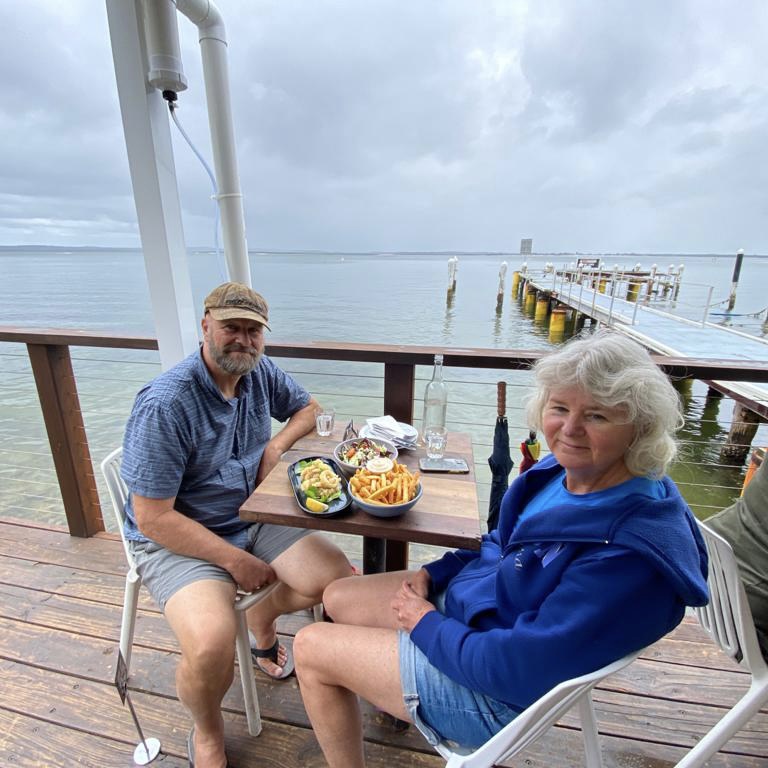

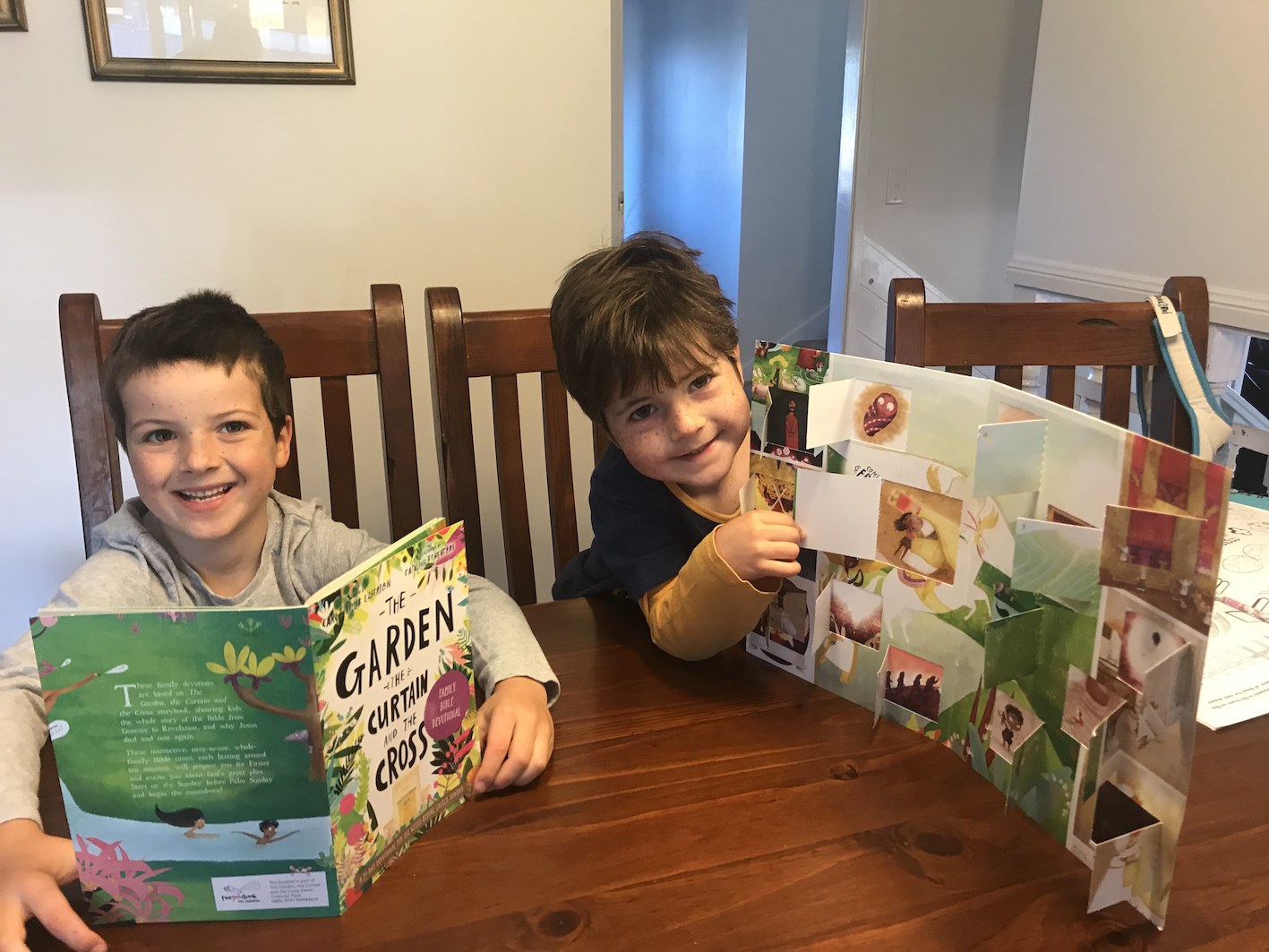
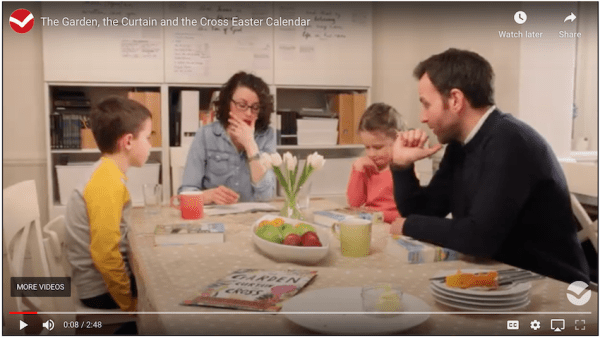
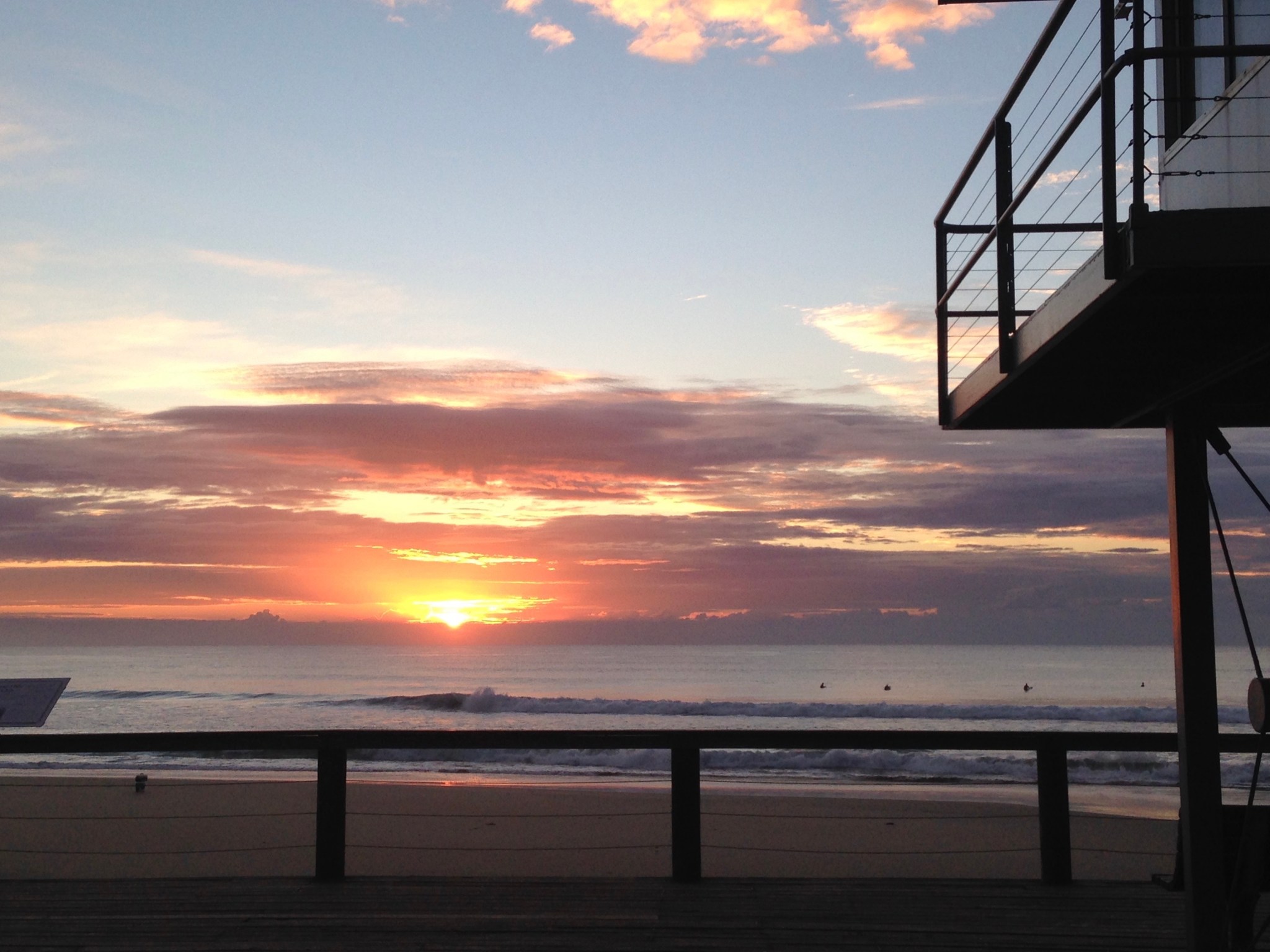
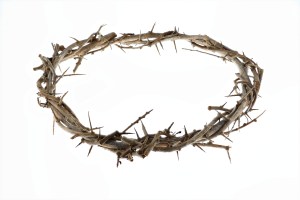
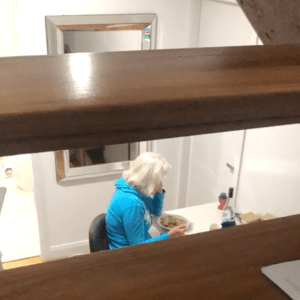 Our son Marcus, came out of quarantine over the weekend and was cleared of having the coronavirus. He returned from Indonesia as the borders were closing and flights were being cancelled. We thank God for the timing. He has now joined me in the house.
Our son Marcus, came out of quarantine over the weekend and was cleared of having the coronavirus. He returned from Indonesia as the borders were closing and flights were being cancelled. We thank God for the timing. He has now joined me in the house.  Marcus now helps with the cooking and we deliver the meals downstairs. Last night we met in the middle, sharing dinner together on the stairs. Thanking God for my family.
Marcus now helps with the cooking and we deliver the meals downstairs. Last night we met in the middle, sharing dinner together on the stairs. Thanking God for my family. This week Fiona and I celebrated our 36th wedding anniversary. We thank God for bringing us through so many ups and downs, and we keep asking him to help us love each other whatever the future may hold. We don’t have a perfect marriage and we’ve got lots still to learn. But the promises we made weren’t conditional. They weren’t dependent on feelings or good circumstances. We went with the traditional options… you know… better/worse, richer/poorer, sickness/health. I suspect we made these promises without pausing to contemplate very deeply. We just knew we wanted to get married and we wanted to stay married. Still do.
This week Fiona and I celebrated our 36th wedding anniversary. We thank God for bringing us through so many ups and downs, and we keep asking him to help us love each other whatever the future may hold. We don’t have a perfect marriage and we’ve got lots still to learn. But the promises we made weren’t conditional. They weren’t dependent on feelings or good circumstances. We went with the traditional options… you know… better/worse, richer/poorer, sickness/health. I suspect we made these promises without pausing to contemplate very deeply. We just knew we wanted to get married and we wanted to stay married. Still do.
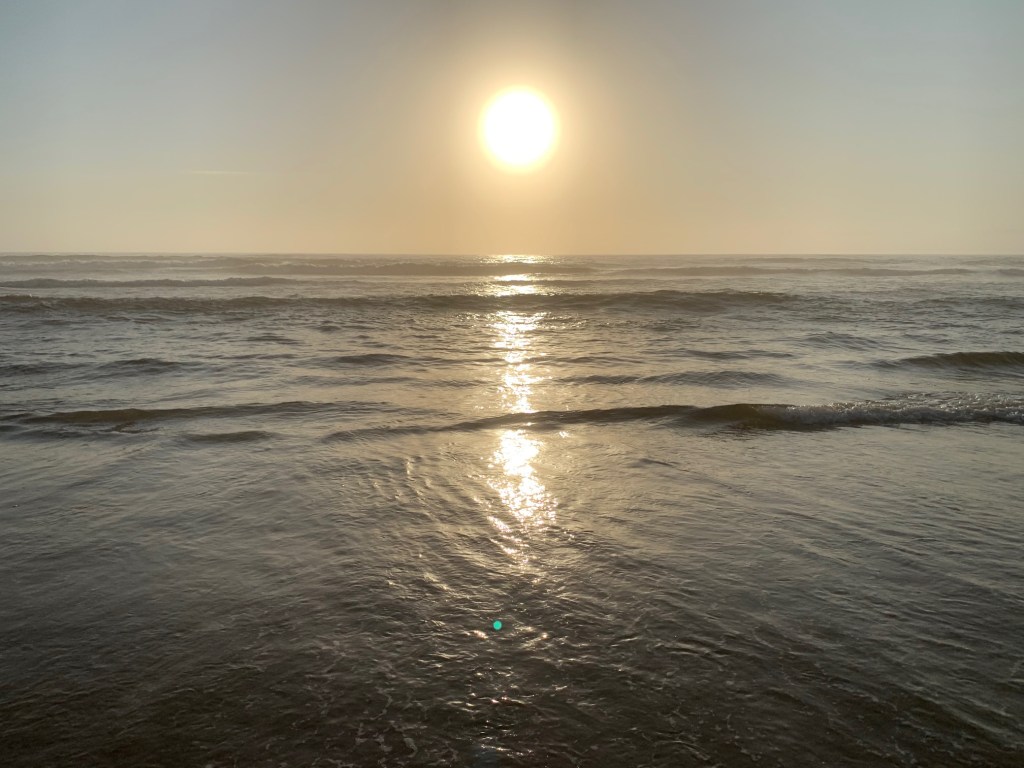
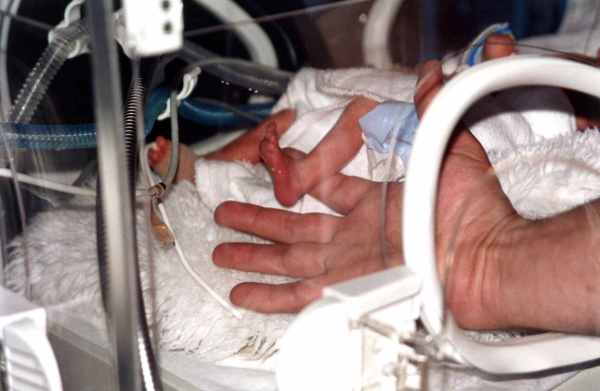 I have a first hand, hands on, deep connection to this matter. Our little girl wasn’t due until 7th January, but she arrived early on 1st October. Do the maths. That’s early. Very very early. More than 14 weeks early. We visited our beautiful girl every single day, sometimes 3 or 4 times, for 97 days in the NICU. We stood by her as she took one step forward and two steps back. We agonised over every setback and rejoiced at every advance. We put life on hold for her. We prayed for her. So many others prayed for her. A treasured daughter, sister, granddaughter, child of God. We watched her grow, develop and mature, day by day, until the day she was due. We had the privilege of seeing what is normally kept hidden—a perfect, precious, baby growing outside instead of inside the womb.
I have a first hand, hands on, deep connection to this matter. Our little girl wasn’t due until 7th January, but she arrived early on 1st October. Do the maths. That’s early. Very very early. More than 14 weeks early. We visited our beautiful girl every single day, sometimes 3 or 4 times, for 97 days in the NICU. We stood by her as she took one step forward and two steps back. We agonised over every setback and rejoiced at every advance. We put life on hold for her. We prayed for her. So many others prayed for her. A treasured daughter, sister, granddaughter, child of God. We watched her grow, develop and mature, day by day, until the day she was due. We had the privilege of seeing what is normally kept hidden—a perfect, precious, baby growing outside instead of inside the womb.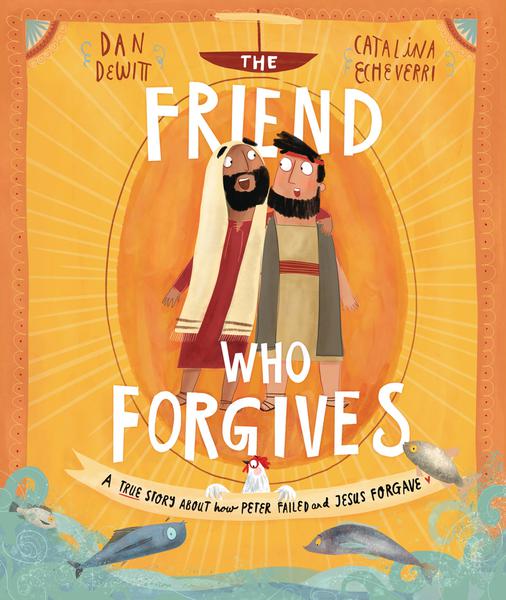 Now that I’m a grandpa, I’m on the look out for great kids’ books. We’ve still got a few at home that our kids haven’t taken with them, but we’re keen for some new ones for when the grandkids come to visit. So I was pleased when the The Good Book Company sent me a new children’s book to review. It’s The Friend who Forgives: A True Story about how Peter Failed and Jesus Forgave, written by Dan DeWitt and illustrated by Catalina Echeverri.
Now that I’m a grandpa, I’m on the look out for great kids’ books. We’ve still got a few at home that our kids haven’t taken with them, but we’re keen for some new ones for when the grandkids come to visit. So I was pleased when the The Good Book Company sent me a new children’s book to review. It’s The Friend who Forgives: A True Story about how Peter Failed and Jesus Forgave, written by Dan DeWitt and illustrated by Catalina Echeverri. We tested the book yesterday with our nearly five year old grandson. He’s not reading yet so Nona read it to him. He listened intently, answering appropriately, and told me he enjoyed it at the end. We’ll read it to him again, next time he comes over.
We tested the book yesterday with our nearly five year old grandson. He’s not reading yet so Nona read it to him. He listened intently, answering appropriately, and told me he enjoyed it at the end. We’ll read it to him again, next time he comes over.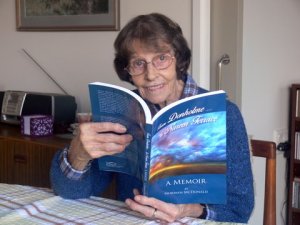 Over the past couple of years my father has been working on his memoirs. He’s been reflecting on more than eight decades of seeing God at work in and through his family, in many different locations. In the last few days these words have been delivered—printed and bound—to his home. Dad has called his book From Donholme to Nareen Terrace, and he has shaped the book around each of the places he has lived. I’m glad the book has a title, because otherwise I might be tempted to call it The Book of Norman! (That’s got that joke out of the way. It was bound to emerge at some point.)
Over the past couple of years my father has been working on his memoirs. He’s been reflecting on more than eight decades of seeing God at work in and through his family, in many different locations. In the last few days these words have been delivered—printed and bound—to his home. Dad has called his book From Donholme to Nareen Terrace, and he has shaped the book around each of the places he has lived. I’m glad the book has a title, because otherwise I might be tempted to call it The Book of Norman! (That’s got that joke out of the way. It was bound to emerge at some point.)